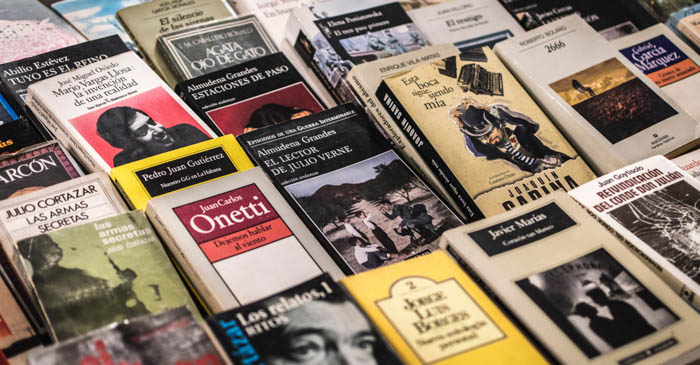
Serialized fiction has a long history in publishing. Famous authors like Charles Dickens and Alexandre Dumas made entire careers of serializing stories in periodicals. Some of their works like A Tale of Two Cities and The Count of Monte Cristo later joined the literary canon and future generations consider them important classic novels.
Despite this illustrious history, the serial faded in popularity with the rise of industrialization. During the first half of the 20th century, readers shifted toward novels after the introduction of the inexpensive mass market paperback format. But once again, reader preferences appear to have changed in recent years. All signs point to serial fiction being on the verge of making a major comeback.
The Appeal of Serial Fiction to Modern Readers
There are many reasons for this such as jam-packed lives and lack of time. Busy people often can’t set aside a few hours to read an entire novel. These same readers, however, can find 5-10 minutes here and there to read a new episode from an ongoing series. Digital devices like smartphones and tablets make it even easier to stay current with their beloved stories. Readers can check new installments during their work commute, while waiting for appointments, or during their lunch hour. As a result, serials have become convenient sources of entertainment for busy readers.
But while online serials are popular mainstays throughout Asia, they’re less well-known in North America and other English-speaking countries. Platforms that publish serialized stories in English do exist and enjoy a dedicated readership just like their Asian counterparts. Even so, they haven’t quite broken through into the mainstream consciousness. When people think of serialized stories, they think of television, audio drama podcasts, and comics. Serial fiction in the tradition of Charles Dickens and Alexandre Dumas is an artifact of the past.
All that may soon change.
Recent Developments in the Webnovel Market
Last January, the South Korean corporation Naver acquired Wattpad for $600 million. Like other online webnovel venues, the platform allows its users to upload fiction. Wattpad publishes original stories across a variety of genres including science fiction, romance, fantasy, and horror. Some of these online serials have gone on to be published as books or optioned for film and television adaptations.
Naver’s acquisition of Wattpad shows the company’s dedication to the serial format. Fans of digital comics will recognize Naver as the parent company of Webtoon, the webcomic platform that publishes popular series like Tower of God, The God of High School, and Noblesse. With Webtoon already featuring series from non-Korean creators such as Rachel Smythe’s Lore Olympus, the Wattpad deal cements Naver’s commitment to bringing convenient, engrossing storytelling to a global audience.
Not to be left out of the action, Kakao made a similar announcement in early May. They acquired Radish, another webnovel platform best known for specializing in romantic serial fiction. But Kakao didn’t stop there. Although negotiations between Kakao and Radish had been ongoing for months, the South Korean entertainment company unexpectedly revealed that they were purchasing Tapas as well. Best known for publishing webtoons including the immensely popular raid fantasy Solo Leveling, Tapas also publishes webnovels. While Kakao is likely more interested in the original webtoons published on Tapas, the additional IP presented by original webnovels are no doubt welcome additions to the entertainment firm’s catalog.
In addition, both Radish and Tapas will provide avenues for Kakao to bring their own webnovel and webtoon IP to an international audience. The combination puts them in an ideal position to compete directly against Naver, Webtoon, and the recently acquired Wattpad. Altogether, Kakao bought Radish and Tapas for a total of $950 million.
Amazon Joins the Fray
But perhaps the strongest indicator of the increasing visibility of serial fiction is Amazon’s plan to enter this publishing arena. While details remain vague, Amazon plans to launch a new self-publishing format known as Kindle Vella to its US-based users later this summer. The platform will target readers who consume their fiction in bite-sized pieces on their smartphones. Longtime webnovel readers will recognize the delivery method as well as other features such as liking and favoriting series they enjoy.
Amazon previously revolutionized the self-publishing arena with their KDP platform and reader-friendly Kindle Unlimited subscription program. No doubt their entrance into the webnovel arena signals a similar intention to capture a large share of the market. Time will tell if they succeed but given the resources at Amazon’s disposal, they will surely make a serious attempt. Considering how ubiquitous Amazon is in daily lives for many people in the United States, Kindle Vella is well-positioned to push serial fiction into the mainstream.
If the past few months have been any indication, the future is bright for online serial fiction platforms. While dedicated novel readers may be skeptical of the format, younger users—as well as people who love their casual cell phone games—will likely be open to consuming the bite-sized installments common to serials and not blink twice at paying the microtransactions required to unlock new episodes. While Amazon’s Kindle Vella will introduce the format to a larger number of North American users, the Naver and Kakao acquisitions only drive home how digital access has made storytelling a global venture. Time will tell how these deals and new platforms will affect serialized fiction as a format. Regardless, we can all agree that it’s an exciting time to be a webnovel fan.











